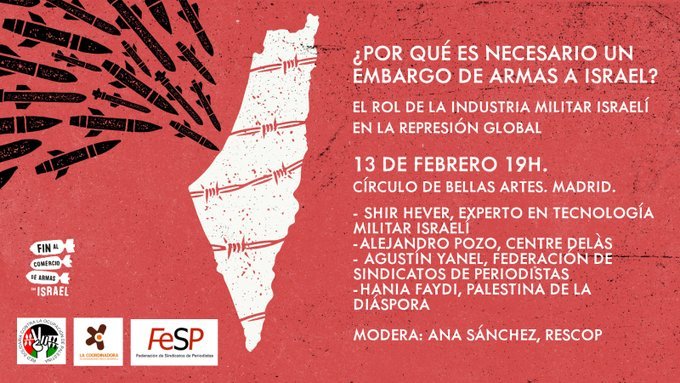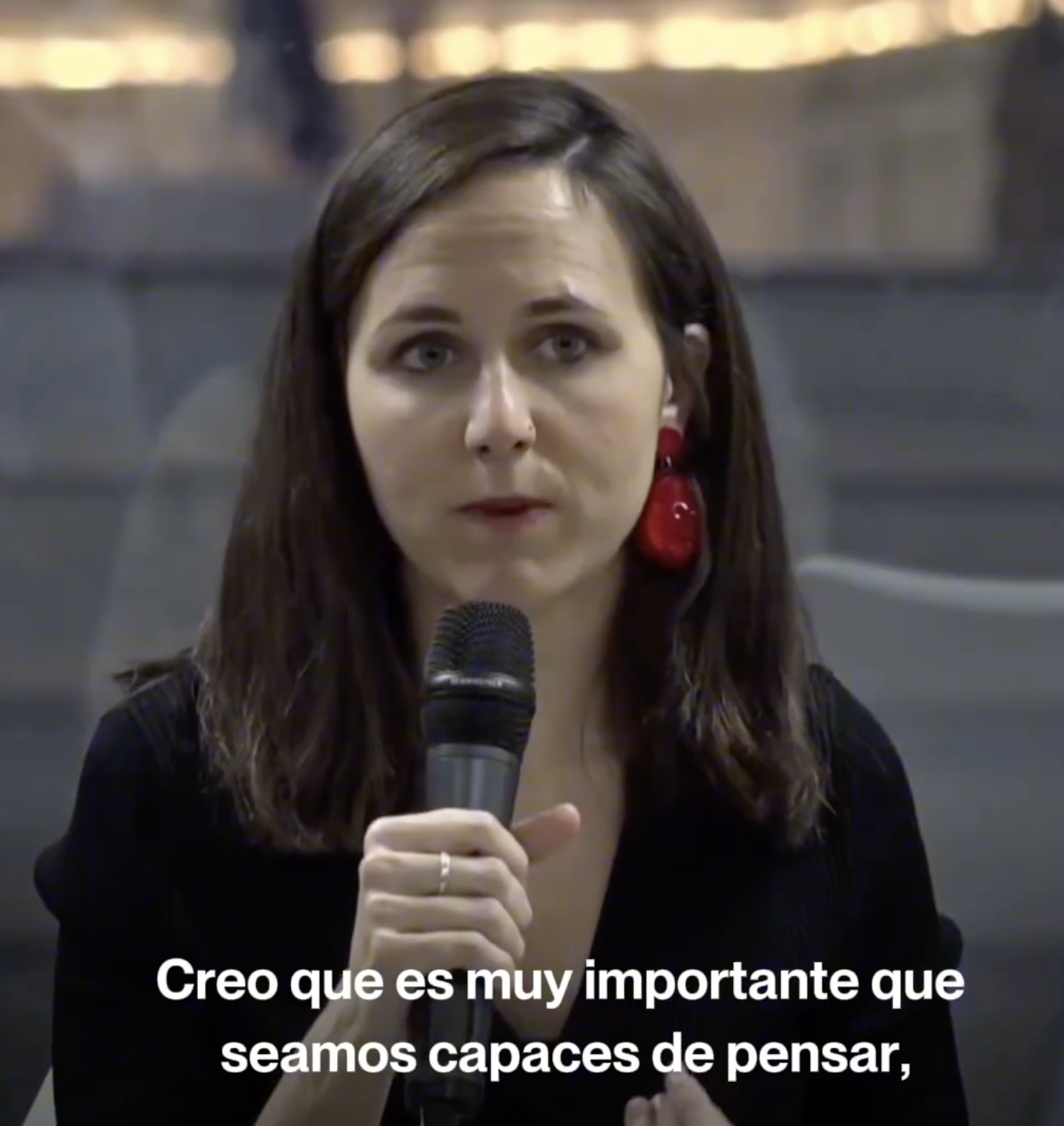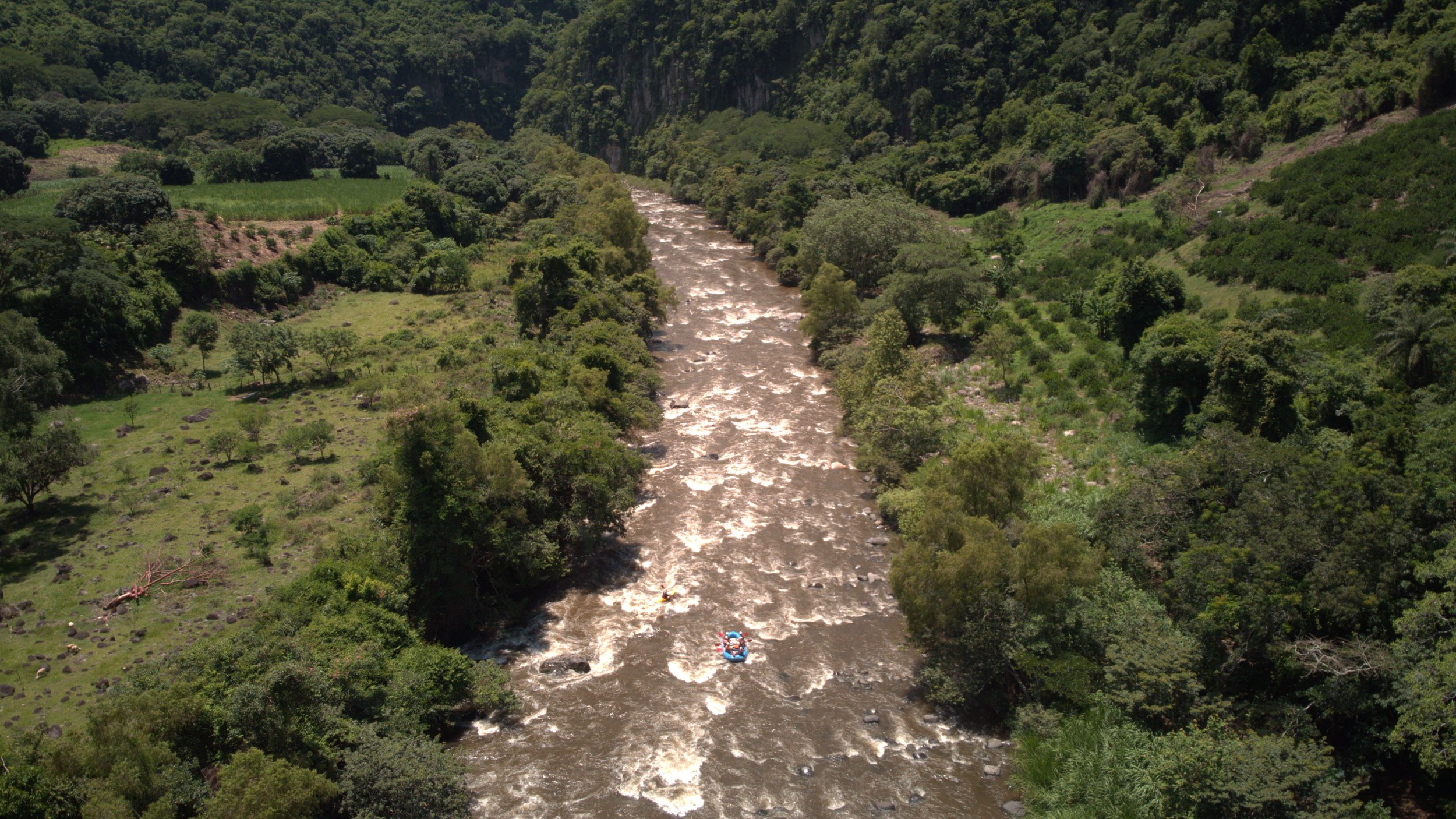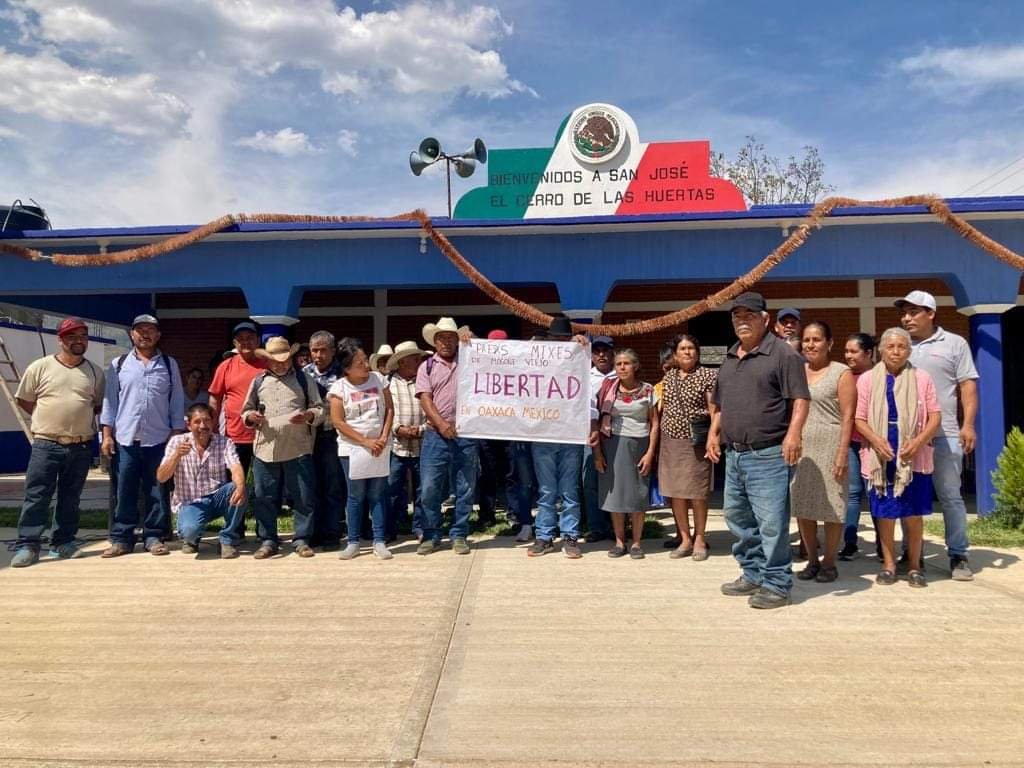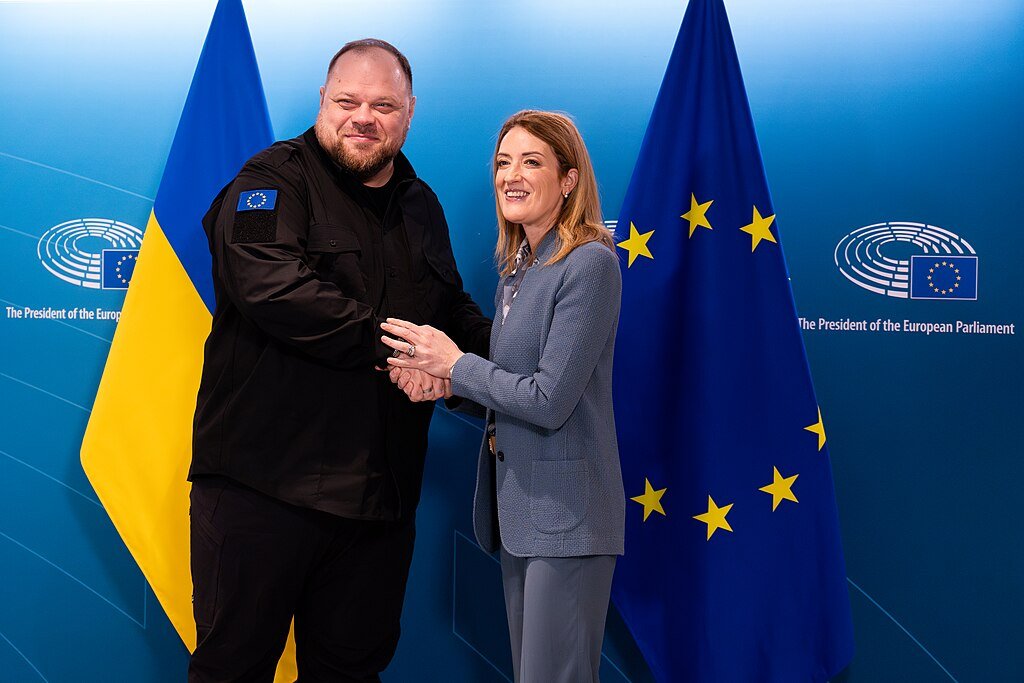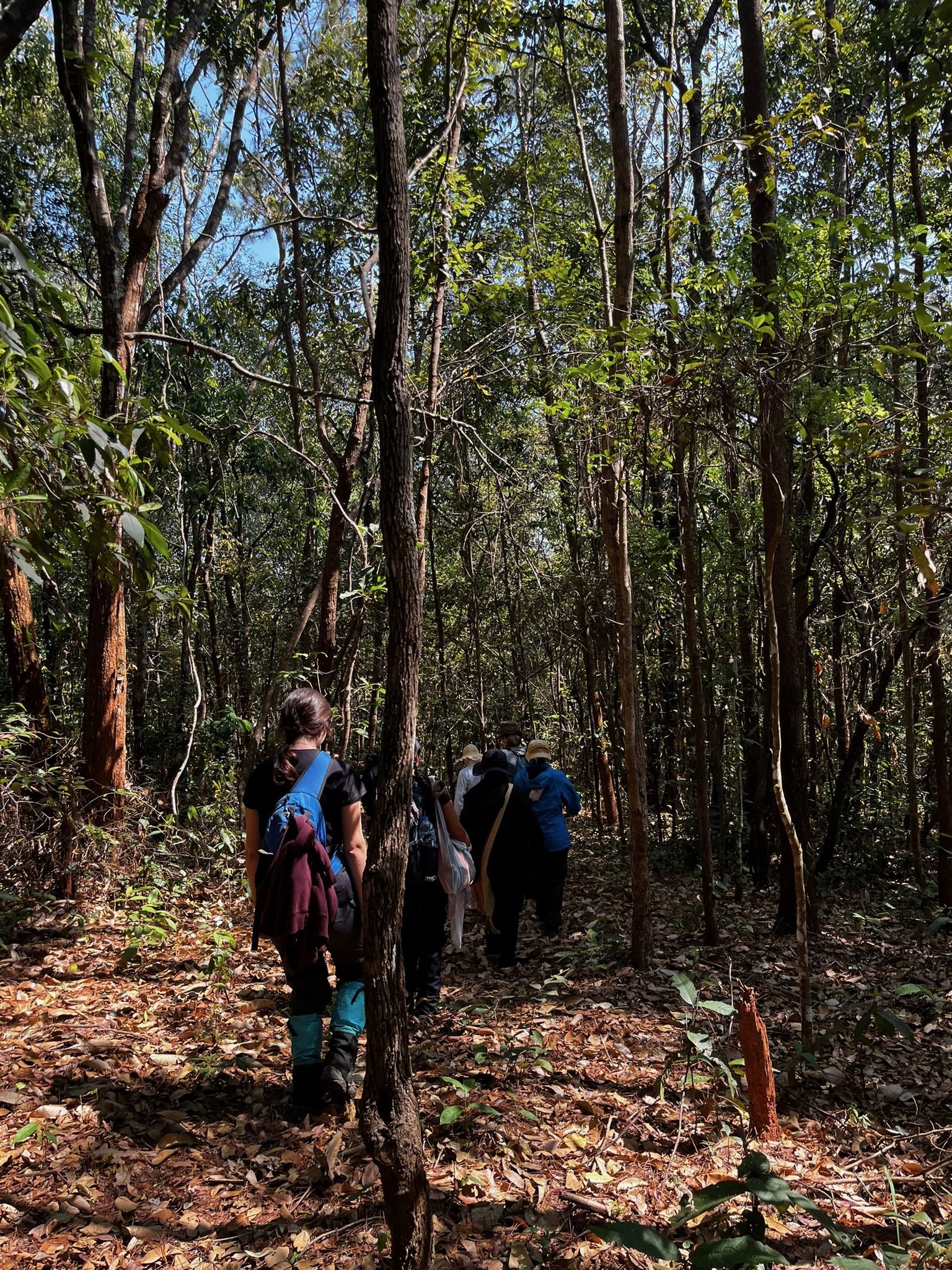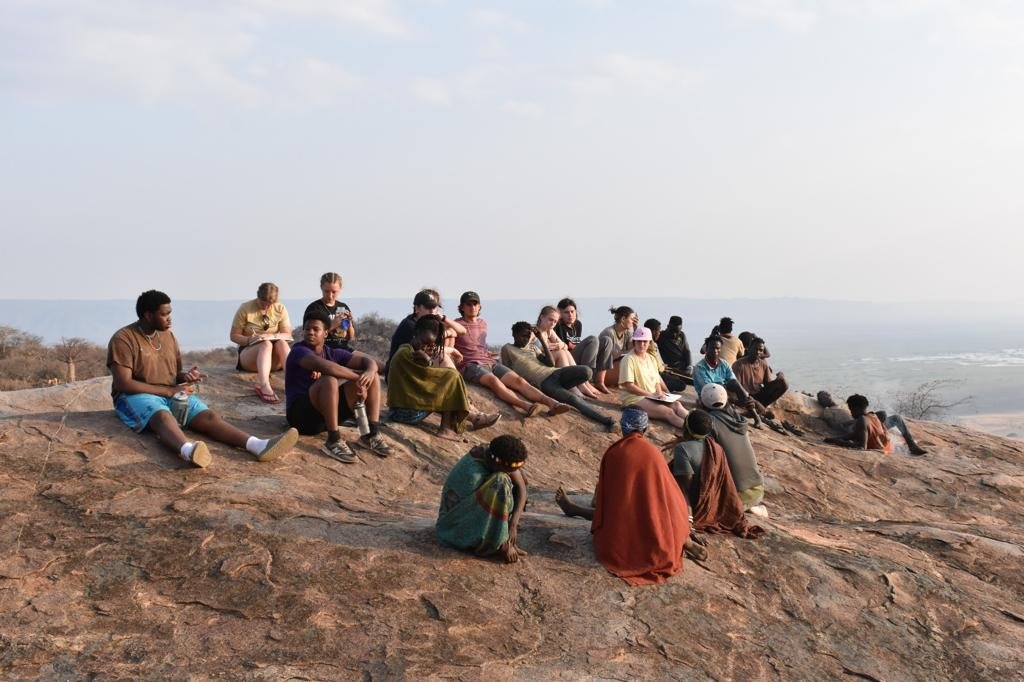
Stories
News

Analysis
Voices
Podcast
Announcements
Events

All Stories
Media Confronting Genocide: Open Discussions vs. “Shadow Bans”
As I noted in my recent report on Madrid’s October 15, 2023 Palestine solidarity march, protesters here in Spain have been seeking to focus attention on the genocidal aspects of Israel’s actions in Gaza. “No es una guerra, es un genocidio!” (“It’s not a war, it’s a genocide”) is one of the most common slogans heard at these solidarity events. For this reason, I was very interested in an interview featured in Spanish public broadcaster RTVE’s nightly news program La Noche en 24H last evening (October 18). Program host Xabier Fortes sought to shed light on the genocide issue by speaking with one of the most important international voices on war crimes prosecution. It was a refreshingly direct conversation.
“Israel Kills, Europe Sponsors!”: Spaniards Mobilize for Palestine, Call Out EU Complicity
As the Israeli military continues to subject Palestinians in Gaza to a brutal siege accompanied by heavy aerial bombardment, citizens around the world are rising up to express their solidarity with Palestinians and to demand that Israel and its international supporters be held accountable. At a march held in the Spanish capital, Madrid, protesters sought to focus attention on the role of the European Union (EU) in enabling Israel’s war crimes.
Climate Justice Now! Spaniards Demand Decarbonization at Madrid March
“De norte al sur, de este al oeste, la lucha sigue, cueste lo que cueste! (From north to south, from east to west, the struggle continues, whatever it takes!)” With this and other slogans ringing in the air, hundreds of activists of all ages filled the streets of downtown Madrid, Spain, on September 15 to demand rapid decarbonization and climate justice. At a time when news reports here are filled with stories of floods, fires, and killer storms throughout the wider Mediterranean region, Madrid’s 15S Climate March provided a much-needed dose of what is usually missing from those reports: a clear-eyed look at the policy steps that must be taken in order to face down our climate crisis.
6 Key Takeaways from Spain’s “Debate of 7”
In my first article from Spain, I set the stage for the country’s upcoming national elections on July 23, focusing on the threat posed by resurgent fascist movements. Now it’s time to dig deeper into the complex political dynamics animating the campaign as well as some of the social forces shaping how the campaign is being waged and covered in the media.
Spain: Here Come the Fascists (Who Never Really Left)
In just over two weeks, Spanish voters will go to the polls for national elections, and the implications - both within and beyond the country - couldn’t be more far-reaching. I just arrived in Madrid and will be spending the next 12 months here, and I hope to provide Weave News readers with a critical, justice-oriented perspective that might be missing from much of the mainstream media coverage of Spanish politics. So, why are these elections so important?
Cirio Ruiz Gonzalez
To know Cirio Ruiz is to know the history of CORECAFECO. He has been part of this council for approximately 40 years. What is CORECAFECO? It is the Coatepec Regional Coffee Council. It is an organization that strives for dignified and fair treatment for coffee workers accomplished through community organization and clean processes, the production of coffee free of agrochemicals. They fight for fairer prices, valuing human and environmental life, taking care of biodiversity and ensuring that the land and water remain healthy.
Resistance Flows On: Mexico’s Water Defenders Unite Their Efforts Once Again
The Fifth Community Assembly for Water (La Quinta Asamblea Comunitaria por el Agua) was held on Friday, May 5, 2023, in Pacho Viejo, Veracruz, Mexico. Pacho Viejo seems an apt location for a convention on the protection and conservation of la Cuenca la Antigua (the Antigua Watershed). It is in the geographic heart of this river basin, situated between the cities of Xalapa, the capital of Veracruz, and Coatepec, often called “the Coffee Capital of Mexico.” This assembly of Sentinelas de rio (River Sentinels) represented a convergence of undercurrents running beneath the region’s rich culture, ongoing political strife, and incredible biodiversity, all flowing toward safeguarding the ultimate source of life: water.
Resistiendo “Proyectos de Muerte”: Entrevista con Carlos Beas Torres
Aquí presentamos una entrevista con Carlos Beas Torres de la Unión de Comunidades Indígenas de la Zona Nortel del Istmo de Tehuantepec (UCIZONI), una organización que ha resistido a CIIT desde su inicio, y que forma parte de la caravana “El Sur Resiste.”
Resisting “Death Projects”: An Interview With Carlos Beas Torres
The following is an interview with Carlos Beas Torres, a member of the Unión de Comunidades Indígenas de la Zona Nortel del Istmo de Tehuantepec (Union of Indigenous Communities from the North of the Isthmus or UCIZONIT), an organization that has resisted the CIIT since its conception and forms part of the “El Sur Resiste” (The South Resists) Caravan.
Alert: Repression and Eviction of the “El Sur Resiste” (The South Resists) Caravan in Guichicovi, Oaxaca
Translation of a statement issued on April 28 by the National and International Caravan “El Sur Resiste” (The South Resists) regarding the repression and eviction of the "Tierra y Libertad" (Land and Liberty) protest camp, which was located in the Mogoñe Viejo community, Huichicovi, Oaxaca. Mexico. Read the original Spanish statement.
“We’re trying to move a society”: Speaking Up For the Rights of Rivers in the North Country
“Rivers keep us alive and keep so many other living beings alive.” With those words, Blake Lavia, the President of Talking Rivers, welcomed more than 30 North Country community members to a wide-ranging discussion on a revolutionary idea: the Rights of Rivers. Held at Clarkson University on Earth Day (April 22), the event showcased the local and global momentum behind the idea as well as some of the key challenges facing those who would like the Rights of Rivers to become law across the St. Lawrence River / Kaniatarowanénhne and Adirondack Watersheds.
Remember the T in LGBTQIA+: Trans Community Faces Increasing Violence in Coastal Kenya
Recently Kenya has come into the global spotlight following the murder of fashion designer, model, and LGBTQIA+ activist Edwin Chiloba in a suspected hate crime in January 2023. However, there are LGBTQIA+ people in Kenya who rarely make it into the global and even national media spotlight - people like Wayne, a monitor with the Center for Minority Rights, who is working to protect and support LGBTQIA+ people in the coastal region of Kenya.
Sharks and Rays Belong on Australia’s Protected Species Lists
The Australian government has incorporated marine life into its Threatened Species Action Plan for the first time ever, but experts warn that the government's failure to address marine species and aquatic predators, such as rays and sharks, could threaten the entire ecosystem.
Privatizing Sacred Spaces: How a New Guatemalan Law Threatens the Mayan Nation
In early May, the Congress of the Republic of Guatemala introduced the first reading of Initiative 5923 or, the “Law for the Rescue of Pre-Hispanic Heritage” (Ley para el Rescate del Patrimonio Prehispánico). Despite the bill’s ambiguously progressive-sounding title, the reading was met with disappointment, outrage, and alarm from the many Indigenous Mayan peoples of Guatemala and their allies from around the world.
Ecuadorian Paro Nacional: The Power of Grassroots Mobilization
This was certainly not the first national strike in Ecuador, nor was it the first time that Ecuadorians have protested against the neoliberal economic policies that have historically disenfranchised the country’s indigenous and impoverished communities. The willingness to shut down Ecuadorian society as an act of protest, despite the subsequent harsh economic repercussions of such mass mobilization, illuminates the fervent desperation of the indigenous communities and other social groups within Ecuador as well as people’s desire for drastic political, social, and economic change.
Bratwurst, Beer, But Not Queer: Homophobia at Oktoberfest
The post has caused a debate on German social media about discrimination against the LGBTQ+ community, especially as it was published in June, internationally known as LGBTQ+ Pride Month. One of Munich’s city council officials, Anja Berger, remarked disapprovingly that this attitude was “hostile towards the LGBT community, and therefore unacceptable.”
The Overlooked Population: Mental Health Crisis of Brittany Students Post-COVID
Alone, isolated from friends, struggling with finances, and constantly worried about his loved ones back at home, Abdul spent days in bed, sleeping through online classes and not communicating with anyone. A student at IMT Atlantique in Brittany, France, Abdul lost more than fun nights out with friends and in-person lectures when the pandemic forced the city into lockdown. "It was difficult to live another day at that time."
News Coverage of the 2021 Colombian National Strike: An Agenda Setting Operation
As Colombia prepares for elections that have the potential to shift the country’s direction significantly, a look back at the country’s 2021 general strike provides a useful window into the forces that have led the country to this point. In particular, a critical analysis of establishment media coverage of the strike reveals the continuing role of dominant institutions in seeking to extend the status quo and undermine the people’s desire for peace and justice after decades of structural violence, dislocation, and corruption.
PARO NACIONAL 2021: Colombians’ Prolonged Outrage Takes Over the Streets
As the presidential elections and a glimpse of change approach, Colombians keep rising to disclose the numerous human rights violations and other abusive realities that the current administration has caused. In order to make sense of what is happening on the ground at the moment, however, we need to look back at the national strike that shook the country in 2021.
Day Off in Victoria Park: Blooming Solidarity Within Indonesian Domestic Workers Community
Every Sunday, a warming atmosphere spreads out in Victoria Park, a green spot in the centre of Hong Kong where groups of foreign domestic workers (FDWs) spend their one day off. Since in Hong Kong, domestic workers are forced by law to live in their employers’ houses, they often find themselves trapped in their workplace. For this reason, on Sunday, they gather in Victoria Park to share their skills and celebrate life in all its forms.











